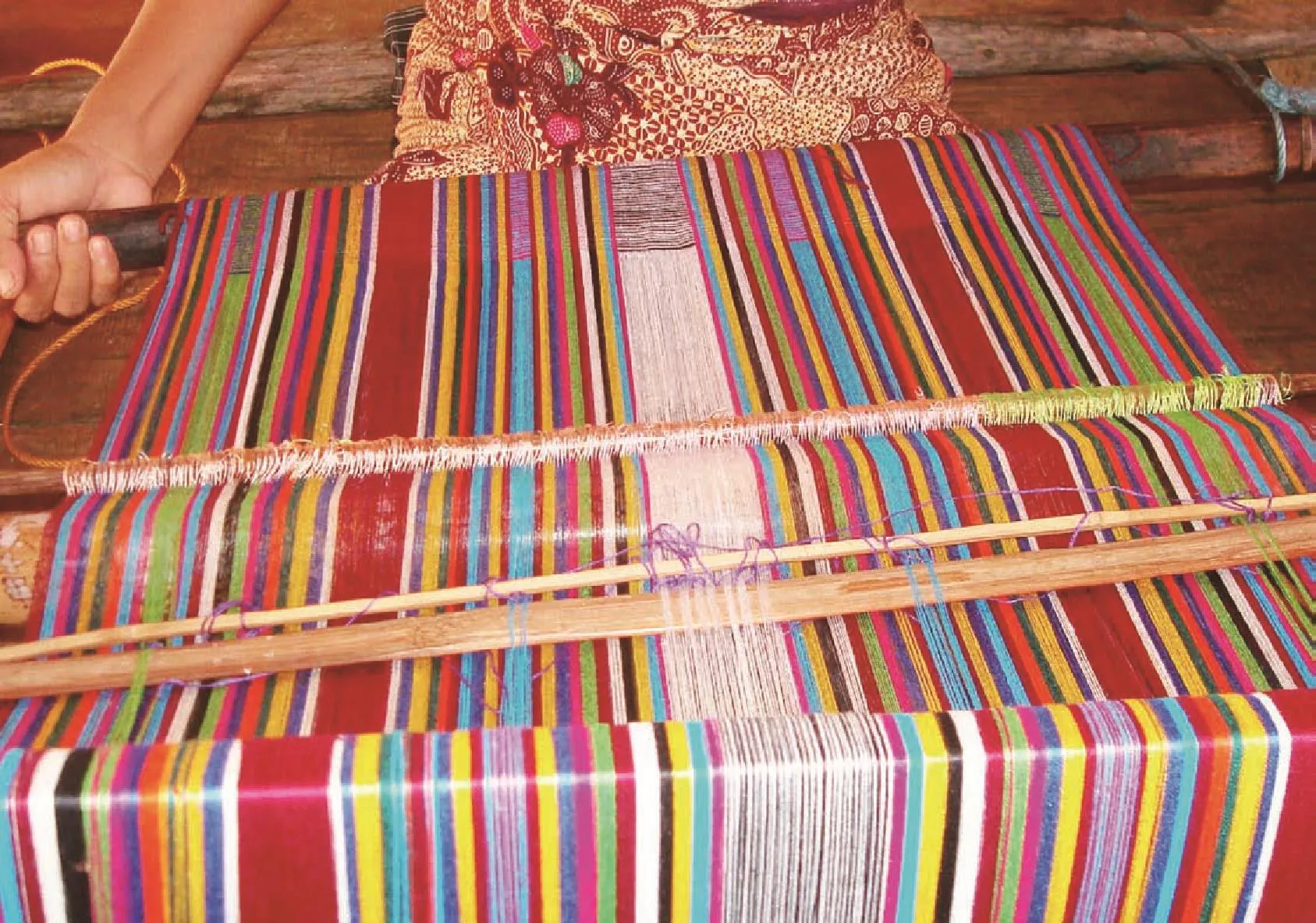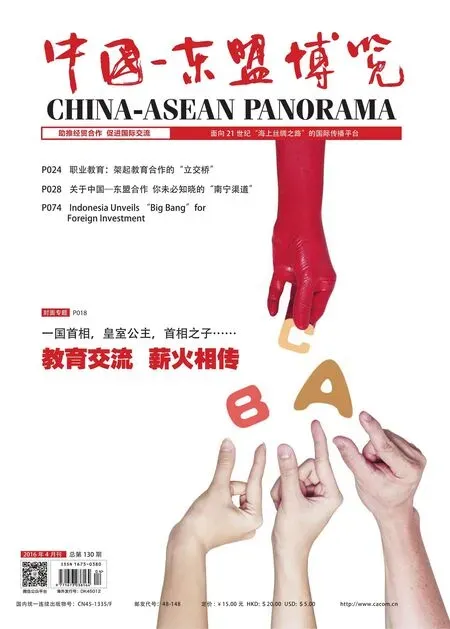2016年印尼纺织业是否前景可观?
□ 文/ 阿拉明塔・塞蒂亚瓦蒂
2016年印尼纺织业是否前景可观?
□ 文/ 阿拉明塔・塞蒂亚瓦蒂

2015年,印尼经济增长放缓对若干行业所产生的消极冲击接连不断,其中,纺织品行业(TPT)便是受到波及的行业之一。鉴于摆脱这一艰难困境的短线上涨动力不够强劲,印尼纺织品行业的发展预计会在2016年全年保持低迷态势。
全球经济复苏前景仍扑朔迷离。同时,印尼国内经济也未有好转迹象。印尼纺织协会 (API) 主席埃德·苏德拉查对未来一年纺织品业发展的持续增长持悲观态度。
截至2015年10月,印尼纺织品业的发展并不尽如人意,其国内生产总值与2014年同期相比出现通货紧缩(6.1%的负增长率)。总体而言,这就意味着2015年印尼纺织业的国内生产总值比制造业更为惨淡:制造业的国内生产总值增长率为4.3%,而印尼国内生产总值增长率则为4.7%。
就全球经济环境而言,国际货币基金组织已将2016全球经济增长率由此前预计的3.6%下调至3.4%。无独有偶,美国预计其2016年的经济增长率仅为2.6%。由于全球经济形势对印尼纺织品业的出口影响巨大,因此,这一增长预计将对印尼纺织品业产生影响,尤其是以欧洲和美国为主要出口市场的纺织品行业。
通常情况下,印尼对美国、欧洲的出口额分别占其总出口额的31%和16%,远远超出其对东盟国家和日本的出口份额。2015年,印尼纺织品业出口总额预计突破129亿美元,与2014年的126.8亿美元相比,呈下跌趋势,而与2014年同期相比,通货紧缩率为5.3%左右。
但是,截至2015年10月,印尼纺织品出口总额仅为102亿美元,完成预期目标的77%左右。究其原因,有一部分是因为印尼出口产品要与其他竞争对手的产品相抗衡,尤其是出口至欧美市场上的越南生产的服装。
越南劳动力成本相当便宜,因其产品生产成本并未受到劳动力成本的极大限制,所以价格相对较低,这与印尼当前的发展现状形成一定的反差。对东南亚诸国中最大的经济体印尼来说,除了原材料成本上涨以外,产品的生产成本也受到日趋昂贵的劳动力成本的困扰。另外,卢比不断贬值,印尼许多公司因不堪重负纷纷倒闭,这是情理之中的事。日益攀高的生产成本影响到了印尼的各行各业(尤其是纺织品业),各大行业迫于压力,纷纷裁员。
例如,印尼纺织协会的观察报告显示,2015年1月至5月期间,万隆四大辖区内的纺织品业裁员6000人。试想一下,倘若此类裁员事件发生在爪哇岛,将会有几万甚至几十万纺织工人下岗。印尼纺织协会称,实质上,通常采取临时裁员的行业,经营状况并不景气。
另外,印尼纺织品的市场竞争力每况愈下。据印尼中央统计局有关数据显示,仅2014年,印尼纺织品在世界市场上的竞争力水平就下降了1.3%。相比之下,越南纺织品的竞争力水平则同比增长1.8%。印尼纺织品的竞争力水平不仅在世界市场上有所下降,在欧美市场上亦是如此,分别下降3% 和25%。
印尼贸易部长托马斯·伦邦谈及印尼在纺织品、鞋类行业最大的竞争对手时表示,越南是印尼纺织业的一大威胁。自越南加入“跨太平洋伙伴关系协定”以来,这一判断更得到证实。他指出,印尼与越南之间的竞争愈演愈烈,同时,越南现已完成与欧盟在自由贸易协定方面的谈判。这就意味着越南产品将进入欧洲市场。对越南来说,欧洲的市场潜力甚至超过美国以及其他20多个国家。伦邦贸易部长解释称,在“跨太平洋伙伴关系协定”框架下,美国领导下的12个成员国有望迅速占据全球市场份额的40%。如此一来,印尼渴望加入“跨太平洋伙伴关系协定”,不足为奇。这一夙愿预计会在未来两年内得以实现。
从另一方面来说,印尼投资协调委员会有关国内外纺织品行业的投资规划的记录给人以启迪。印尼投资协调委员会称,纵观2015年,印尼国内外投资规划显著增加。针对这一增长态势可能对2016年劳动密集型投资产生的推动作用,该委员会作出了积极评估。2015年上半年,纺织品各子领域的投资收益的正增长趋势尤为明显。例如,纺织纤维加工业中82个项目的投资增额收益率为213%,约合24亿卢比(折合1.76亿美元);纺织制造业中25个项目的投资增额收益率为613%,约合1630亿卢比;服装行业的投资增额收益率为16%,约合9410亿卢比;服装面料行业中15个项目的投资增额收益率为563%,约合2160亿卢比。
正如2015年纺织品行业规范许可证的相关数据所显示的那样,印尼纺织品业投资规划价值13.1万亿卢比,较去年上涨68%。印尼投资协调委员会主席弗朗基表示,印尼纺织品业的这一数据包括新增101000纺织工人的就业率在内。2016年,这些投资规划的落实有望为印尼政府设定的创造200万个就业岗位的目标作出积极贡献。
印尼投资协调委员会公布的投资数据显示,印尼纺织品行业的复苏仍有希望。然而,只有印尼政府采取措施并给予支持,纺织品行业才会实现复苏。目前,印尼政府正通过打造民族品牌、建立棉线物流基地等举措以确保纺织品必备原料的有效供应。随着深层次一揽子经济政策的出台,纺织品行业投资及产业发展将实现持续增长。此外,由于燃气、电和柴油价格下跌,纺织品产业竞争力总体上极有可能得到提升。同时,印尼政府通过大力控制进口、借助零关税政策稳固国内市场等措施,鼓励纺织品行业提高经济效益。印尼政府采取的政策还包括:强制推行印尼国家标准(SNI),采购商品和服务时使用国内产品,重组纺织品、鞋类行业机器设备等。
许志亮 译
作者系印度尼西亚曼迪利银行行业分析师
Indonesia Unveils “Big Bang” for Foreign Investment
By Nicholas Owen and Fransiska Nangoy
I ndonesia opened dozens of sectors to foreign investors in what President Joko Widodo has described as a “Big Bang” liberalisation of its economy, Southeast Asia’s largest.
President Joko Widodo’s administration loosened foreign investment restrictions on everything from restaurants and agriculture to health facilities and movie theatres.
“Today’s revisions represent our largest opening to international investment in 10 years,” Trade Minister Tom Lembong told Reuters.
“More international investment will bring more capital, more world-class expertise, more technologies to Indonesia.Domestic players must seize those opportunities.”
Twenty-nine sectors including restaurants and the movie industry were removed from the “negative investment list”(DNI) altogether, meaning that foreigners can operate in those areas without restrictions.
The negative investment list sets out which parts of Indonesia’s economy are partially or fully closed to foreign investors, who in recent years have complained of rising economic protectionism and nationalism as they look to expand into the market of more than 250 million people.
Widodo told in an interview he was opening up more room for foreigners in the latest of 10 policy packages since last September aimed at stimulating the economy, which grew by 4.8 per cent last year, the slowest since the 2009 global crisis.
The investment revisions were supposed to come out in early January, but Widodo postponed the announcement because he was not satisfied that the reform was radical enough, Lembong said.
The announcement was not all about opening up Indonesia’s industries, however.Nineteen sectors, including low-tech construction, were added to the list of industries with foreign investment restrictions.
Although foreign direct investment into Indonesia has risen in recent years, it remains among the lowest in Southeast Asia in relation to total investment and gross domestic product.
Foreign investors have pushed for years for a greater access to opportunities in Indonesia’s vast domestic market, valued at some $840 billion.
Foreign businesses applauded the latest move as a sign that Widodo was moving in the right direction.
“This will help restore confidence that Indonesia is open for business,” said Adrian Short, chairman of the British Chamber of Commerce in Jakarta.
But he stressed that “implementation of the regulations will be key.”Lin Neumann, head of the American chamber, also said the reforms were a step in the right direction but the proof would be how investors arriving in newly opened sectors are greeted.
“We’ve gone through literally years of Indonesia closing down its economy to foreign investment, and so the leadership realises that in order to reach their goals they need foreign investors, but they have to make it possible for investors to be here, and that’s not always been the case,”he said.
Some local investors were less gushing about the reform, complaining that it had been rushed through without suffi cient consultation.
“In my opinion, the timeline to discuss the DNI was too short,” said Hariyadi Sukamdani, the chairman of Indonesian Employers Association (APINDO).
“Liberalisation may increase employment, taxes, etc.But we have to think about ownership, too.”
Resource: www.thepeninsulaqatar.com

